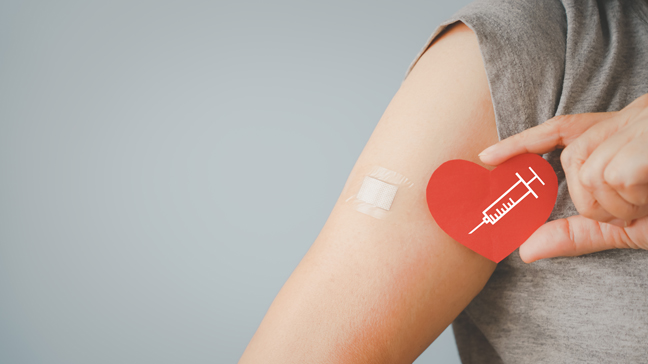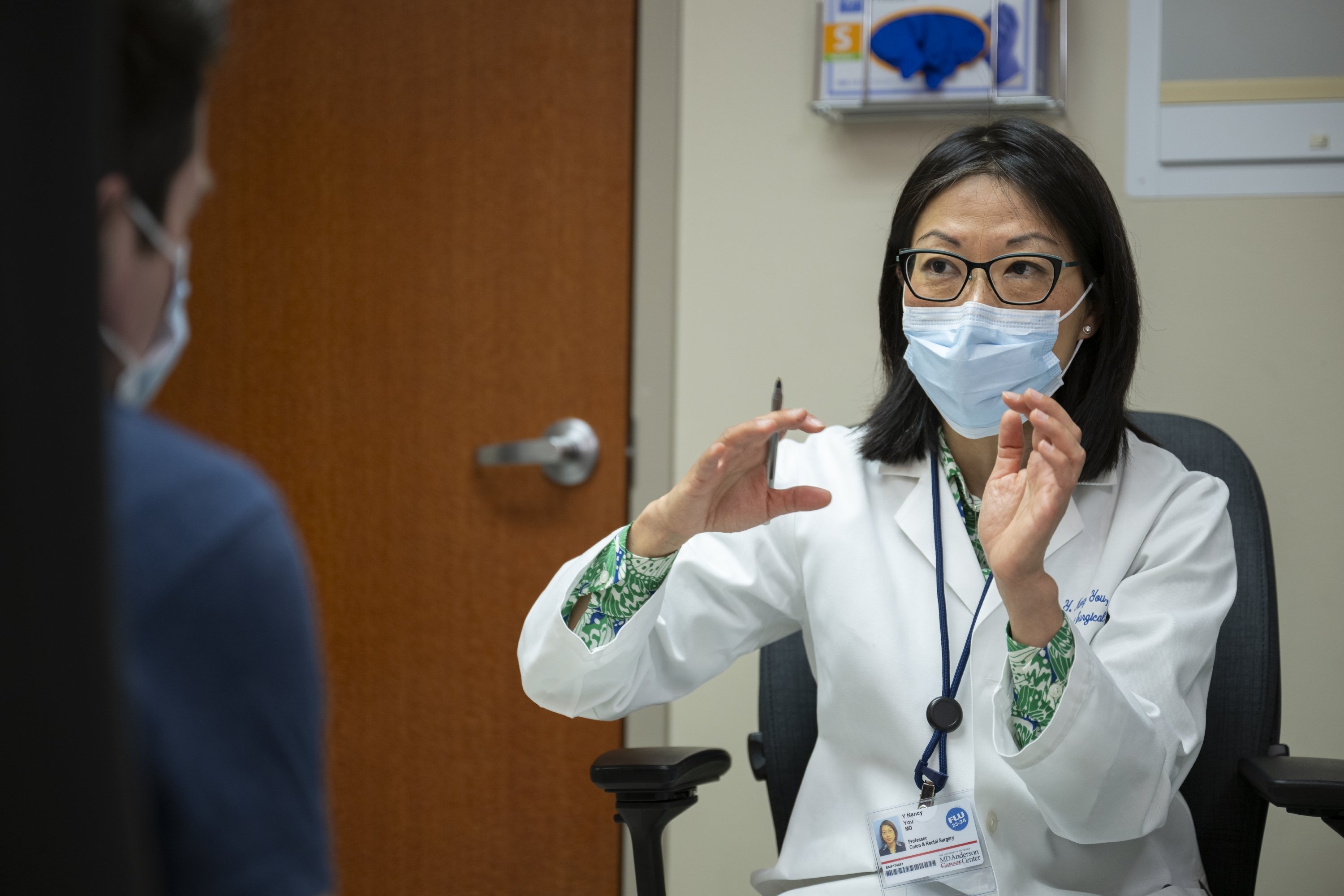- Diseases
- Acoustic Neuroma (14)
- Adrenal Gland Tumor (24)
- Anal Cancer (68)
- Anemia (2)
- Appendix Cancer (16)
- Bile Duct Cancer (26)
- Bladder Cancer (72)
- Brain Metastases (28)
- Brain Tumor (232)
- Breast Cancer (714)
- Breast Implant-Associated Anaplastic Large Cell Lymphoma (2)
- Cancer of Unknown Primary (4)
- Carcinoid Tumor (8)
- Cervical Cancer (158)
- Colon Cancer (166)
- Colorectal Cancer (118)
- Endocrine Tumor (4)
- Esophageal Cancer (44)
- Eye Cancer (36)
- Fallopian Tube Cancer (8)
- Germ Cell Tumor (4)
- Gestational Trophoblastic Disease (2)
- Head and Neck Cancer (12)
- Kidney Cancer (128)
- Leukemia (342)
- Liver Cancer (50)
- Lung Cancer (286)
- Lymphoma (278)
- Mesothelioma (14)
- Metastasis (30)
- Multiple Myeloma (100)
- Myelodysplastic Syndrome (60)
- Myeloproliferative Neoplasm (6)
- Neuroendocrine Tumors (16)
- Oral Cancer (100)
- Ovarian Cancer (172)
- Pancreatic Cancer (160)
- Parathyroid Disease (2)
- Penile Cancer (14)
- Pituitary Tumor (6)
- Prostate Cancer (146)
- Rectal Cancer (58)
- Renal Medullary Carcinoma (6)
- Salivary Gland Cancer (14)
- Sarcoma (238)
- Skin Cancer (296)
- Skull Base Tumors (56)
- Spinal Tumor (12)
- Stomach Cancer (64)
- Testicular Cancer (28)
- Throat Cancer (92)
- Thymoma (6)
- Thyroid Cancer (98)
- Tonsil Cancer (30)
- Uterine Cancer (80)
- Vaginal Cancer (16)
- Vulvar Cancer (20)
- Cancer Topic
- Adolescent and Young Adult Cancer Issues (20)
- Advance Care Planning (10)
- Biostatistics (2)
- Blood Donation (18)
- Bone Health (8)
- COVID-19 (362)
- Cancer Recurrence (120)
- Childhood Cancer Issues (120)
- Clinical Trials (632)
- Complementary Integrative Medicine (22)
- Cytogenetics (2)
- DNA Methylation (4)
- Diagnosis (232)
- Epigenetics (6)
- Fertility (62)
- Follow-up Guidelines (2)
- Health Disparities (14)
- Hereditary Cancer Syndromes (126)
- Immunology (18)
- Li-Fraumeni Syndrome (8)
- Mental Health (116)
- Molecular Diagnostics (8)
- Pain Management (62)
- Palliative Care (8)
- Pathology (10)
- Physical Therapy (18)
- Pregnancy (18)
- Prevention (918)
- Research (392)
- Second Opinion (74)
- Sexuality (16)
- Side Effects (604)
- Sleep Disorders (10)
- Stem Cell Transplantation Cellular Therapy (216)
- Support (402)
- Survivorship (322)
- Symptoms (182)
- Treatment (1786)
Why I got my 13-year-old daughter vaccinated against COVID-19
3 minute read | Published August 09, 2021
Medically Reviewed | Last reviewed by an MD Anderson Cancer Center medical professional on August 09, 2021
As a doctor, I’m used to looking at data sets to determine when medical studies are working really well, sort of well or not very well at all. And not many things in this world work as incredibly well as vaccines.
That’s why, when the COVID-19 vaccine was granted emergency use authorization in adolescents ages 12-15, I got my 13-year-old daughter, Madeleine, vaccinated right away.
I plan to get her 8-year-old sister, Genevieve, vaccinated, too, as soon as the Food and Drug Administration (FDA) grants the COVID-19 vaccine emergency use authorization for children ages 5-11.
How I made the decision to vaccinate my adolescent daughter against COVID-19
I made the decision to get my elder daughter vaccinated both from a professional perspective as a doctor and a personal perspective as a mother.
Because she’s an adolescent, I knew the chances of Madeleine developing a severe case of COVID-19 weren’t that high if she caught it. But I also knew that there was small chance she could get very sick. I wanted to make sure I did my very best to protect her.
When I looked at the results of the clinical trials for the COVID-19 vaccines, it was pretty astounding to see how well they worked. The vaccines have proven to be incredibly effective at preventing severe illness. And when you find something that can prevent that much suffering and disease, it’s important to take advantage of it. Seeing what a home run the studies were made my choice that much easier.
How my daughter felt about getting vaccinated against COVID-19
My husband and I both got vaccinated as soon as we could. We talked about getting the vaccine in our house very positively. We looked at it as a way of finally getting us past this difficult chapter, so we were both pretty excited about it.
Because of that — and the fact that most of my daughter’s friends were also getting their vaccines — I don’t think Madeleine was worried about receiving hers. She was just a little nervous about the injection itself. For each of the two doses, her only side effect was a sore arm for a couple of days. It was no different than what she’d experienced with the flu shot or any other vaccine.
After she got the COVID-19 shot, she even told me, “Mom, why was I worrying about that? It was nothing!”
How the COVID-19 vaccine has helped us both
Aside from protecting my adolescent daughter, the main benefit of getting Madeleine vaccinated against COVID-19 is that it has made me less worried about her getting sick.
Even if Madeleine does get COVID-19 now, I know it’s unlikely to be a really bad case, so that takes some of the weight off of my shoulders. I worry about her sister, though, because she’s too young to get the vaccine yet. Still, I worry less about Madeleine, because I also know she’s as protected as possible.
My advice to other parents
Nobody likes living with limitations, but I think it’s important to keep balancing the possible effects of social isolation on kids’ mental health with the risk of them getting COVID-19.
Madeleine missed out on a lot of social opportunities due to the pandemic, which was really hard for her. Being vaccinated has helped my daughter get back to a more normal life.
Every parent has to make their own decision based on the information available. But when I weighed the importance of keeping my kid safe against the risk of a little discomfort from a possible side effect, the choice was easy and clear. Protecting my daughter was far and away the most important thing. And looking at the results of the clinical trials was all the convincing I needed.
Ann Klopp, M.D., Ph.D., is a radiation oncologist and the medical director of MD Anderson’s COVID-19 Vaccine Clinic.
Schedule a vaccine appointment at MD Anderson. Appointments are open to patients, caregivers and the general public ages 12 and older.
Related Cancerwise Stories

When you find something that can prevent that much suffering and disease, it’s important to take advantage of it.
Ann Klopp, M.D., Ph.D.
Physician & Researcher






